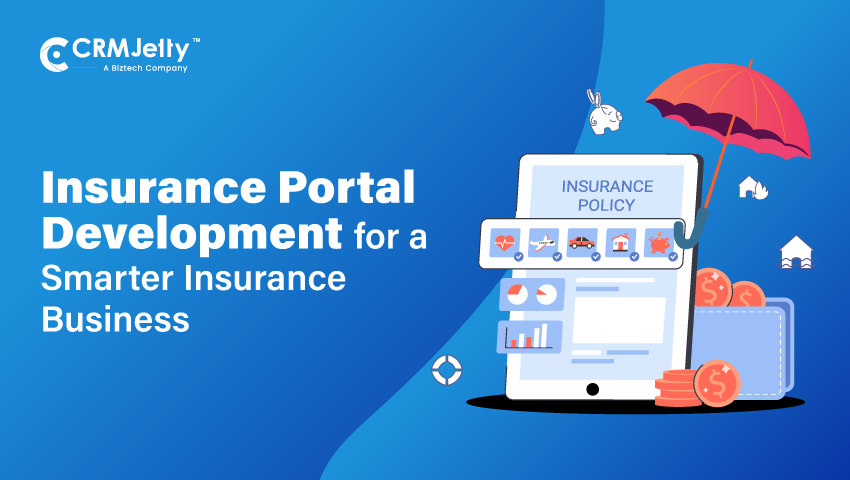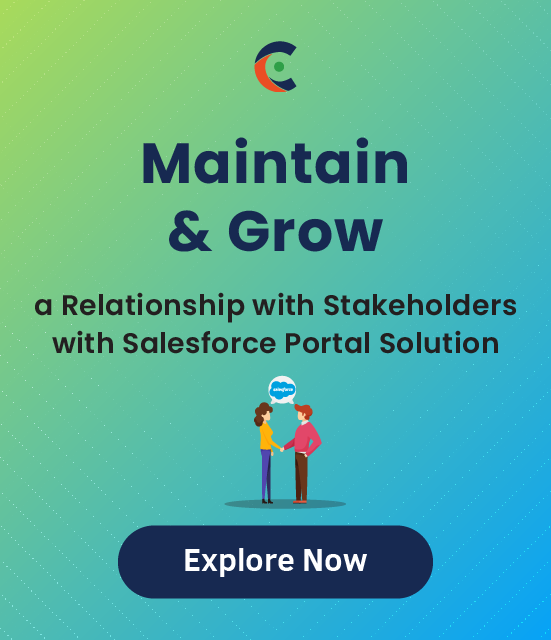Insurance company needs to rethink how they connect with everyone – the people holding the policies, the agents out there, and their partners. The solution that’s popping up? A smart, easy-to-use insurance portal that basically puts everything together in one place, which makes total sense, right?
So, in this blog post, we’re going to chat about why these insurance portals are becoming super important. And yeah, we’ll even talk about why getting a custom-built solution might be exactly what your business needs as you look down the road. If you’re trying to make things run smoother and make life a little less complicated for your team and your customers, well, you’re definitely in the right spot.
Current Industry Challenges
Even though the insurance industry is moving toward digital transformation, many providers still deal with challenges that slow them down and frustrate customers. Here are some of the most common pain points:
- Disconnected Communication Channels
Customers often have to switch between emails, calls, and paper documents to get updates or share information. This not only creates confusion but also leads to delays and errors.
- Manual, Time-Consuming Processes
From onboarding to claims processing, many insurers still rely on outdated systems that involve a lot of back-and-forth. That eats up time, increases costs, and leaves customers waiting.
- Lack of Real-Time Access
Policyholders want to view and manage their policies, file claims, and track status updates on their own terms—anytime, from any device. Without a self-service portal, that’s just not possible.
- Limited Customer Engagement
Without personalized interactions or proactive communication, building lasting customer relationships becomes a challenge. Generic experiences don’t build trust or loyalty.
- Compliance and Security Concerns
Insurance companies deal with sensitive data and have to meet strict regulatory standards. Without the right digital infrastructure, managing this safely and efficiently is tough.
The Role of Insurance Portals in Addressing These Challenges
This is where insurance portals step in and really start to make a difference. More than just a convenient login screen, a well-built portal becomes the digital bridge between insurers, customers, agents, and even underwriters.
Streamlined Communication
Think about it: no more bouncing between a million emails, endless phone calls, and piles of forms. A good central portal just pulls all the communication together. Everyone involved – whether it’s your team or the customer – can see the same info as it happens. This cuts down on so many of those “wait, what did they say?” moments and all that back-and-forth that eats up everyone’s time.
Faster, Smarter Processes
With the portal handling a lot of the heavy lifting through automation and built-in workflows, tasks like filing claims, changing policy details, or even just requesting a quick quote can occur much faster and with fewer errors. This means your team isn’t stuck doing tons of boring data entry and can actually focus on the stuff that really matters.
On-Demand Access for Customers
Honestly, a great insurance customer portal puts the policyholders in the driver’s seat. They can just log in whenever they want – morning, noon, or night – to see their policies, grab important documents, keep an eye on their claims, and even make payments. That kind of “do-it-yourself” flexibility really builds trust and makes things easier for them.
Improved Customer Relationships
When customers have their own personalized view, get updates when they need them, and can clearly see what’s going on, they just feel more in the loop and connected. And when people feel informed and engaged, they’re way happier and more likely to stick around.
Secure and Compliant by Design
Let’s be real, security is a big deal. Things like scrambling the data (encryption), giving different people different levels of access, and keeping track of everything help you meet all the rules and regulations while keeping sensitive info locked down tight.
Key Features of an Ideal Insurance Customer Portal
We have some must-have features you should be looking for (or making sure you include) in your insurance customer portal:
1. Secure Login and Role-Based Access
Different users need different levels of access. Customers, agents, underwriters, and admins should only see the information relevant to them. Built-in security features like multi-factor authentication help keep data safe.
2. Self-Service Dashboard
A clean, intuitive dashboard where users can view their policies, submit claims, check claim status, make payments, and download documents—without needing to contact support.
3. Claims Management
A dedicated section to initiate, track, and manage claims. It should also allow users to upload documents, receive status updates, and communicate with support directly through the portal.
4. Policy Management
Policyholders should be able to view current coverage, renew or request changes, and receive reminders when important dates are approaching.
5. Integrated Payments
Allow users to pay premiums or claim-related charges securely through the portal. Payment history and invoice downloads are also helpful.
6. Real-Time Notifications
Send alerts or updates for things like claim approvals, document submissions, renewal dates, and more, keeping users in the loop at all times.
7. Document Management
Let users upload and download necessary documents, securely store their records, and receive important paperwork electronically.
8. Analytics & Reporting
For internal users, the portal should offer reporting tools to track claim trends, policy updates, customer activity, and more, helping you make informed decisions.
Types of Portals in the Insurance Industry
Insurance operations involve more than just policyholders. Agents, brokers, and external partners all play important roles—and they each need access to different tools and information. That’s why insurance portal development often involves building multiple types of portals, tailored to specific users.
1. Customer Portal
This is the face of your business for policyholders. A customer portal enables individuals to view and manage their policies, submit and track claims, make payments, download documents, and access support—all without needing to call.
2. Agent/Broker Portal
Agents need a dedicated space to manage leads, submit quotes, track commissions, and handle customer interactions. Giving them this self-service capability saves time for everyone involved and makes onboarding new customers much easier.
3. Partner Portal
Whether you work with repair shops, healthcare providers, or other third parties, a partner portal can streamline collaboration. Share documents, manage workflows, and exchange information securely without relying on endless email threads.
Platform-Specific Solutions: Salesforce and Dynamics 365 Insurance Portals
Picking the right CRM to work hand-in-hand with your portal? Yeah, that can be a game-changer. Two big names that come up a lot – Salesforce and Microsoft Dynamics 365 – both have some serious power. When you team them up with a portal that’s built just for insurance, things can really take off.
Salesforce Insurance Portal
- Everything talks to your CRM: All the stuff your customers and agents are doing in the portal? It automatically shows up in Salesforce, like right now. No more jumping between systems!
- Things happen automatically: You can set it up so that when someone does something in the portal – like files a claim or updates their info – it can automatically send emails, update the claim status, or even assign it to the right person.
- You control who sees what: Whether it’s a customer logging in, an agent checking on things, or someone on your internal team, Salesforce lets you decide exactly what they can see and do. Super handy for keeping things organized.
- Get the inside scoop: You can see what’s happening in your portal in real-time – how often people are using it, how many claims are coming in, and even how happy your customers seem to be. That kind of info is gold!
Basically, with a portal powered by Salesforce, you’re not just giving people a way to access things online. You’re building a connected experience that really puts your customers and agents first.
Dynamics 365 Insurance Portal
Now, if your company is already big on Microsoft – you know, using things like Outlook, Teams, Excel, and SharePoint all the time – then a Dynamics 365 insurance portal could be a really smooth fit. Here’s the lowdown on what it offers:
- Everything Microsoft works together: Imagine using Outlook for emails, Teams for chats, Excel for spreadsheets, and SharePoint for documents – and they all just connect perfectly with your CRM and the portal. Talk about making life easier!
- Solid security and following the rules: It’s got built-in features to help you meet all the industry standards and keep all that sensitive customer info safe and sound. That’s a big plus, right?
- Making complicated stuff simpler: You can set up custom ways of doing things and automate processes for approvals, handling claims, renewing policies, and all that other complex stuff. It just makes things flow better.
- Everyone on the same page: With Dynamics, all your different departments – from the people handling claims to the folks in customer service – are all looking at the same information. No more confusion about who knows what!
Both Salesforce and Dynamics 365 are powerful tools – the most important thing is picking the one that fits how your business works and then building a portal around it that’s exactly what you need.
Conclusion: Ready to Build the Future of Your Insurance Business?
Whether you’re leaning towards a Salesforce insurance portal, a Dynamics 365 insurance portal, or even a completely custom CRM portal for insurance, the most important thing is that it fits your specific needs and works seamlessly with the systems you already have in place.
And that’s exactly where we come in at CRMJetty. Our team? We’re not just CRM experts; we’ve also spent years building custom portals for insurance companies like yours. We’re all about helping you find better, smarter ways to work – securely, efficiently, and in a way that can handle your growth.
So, let’s chat about what you’re hoping to achieve with your insurance portal.
Why not reach out today to schedule a quick consultation? We’re here to help you take that digital vision you have and turn it into a real, working solution that supports your business every step of the way.
All product and company names are trademarks™, registered® or copyright© trademarks of their respective holders. Use of them does not imply any affiliation with or endorsement by them.







